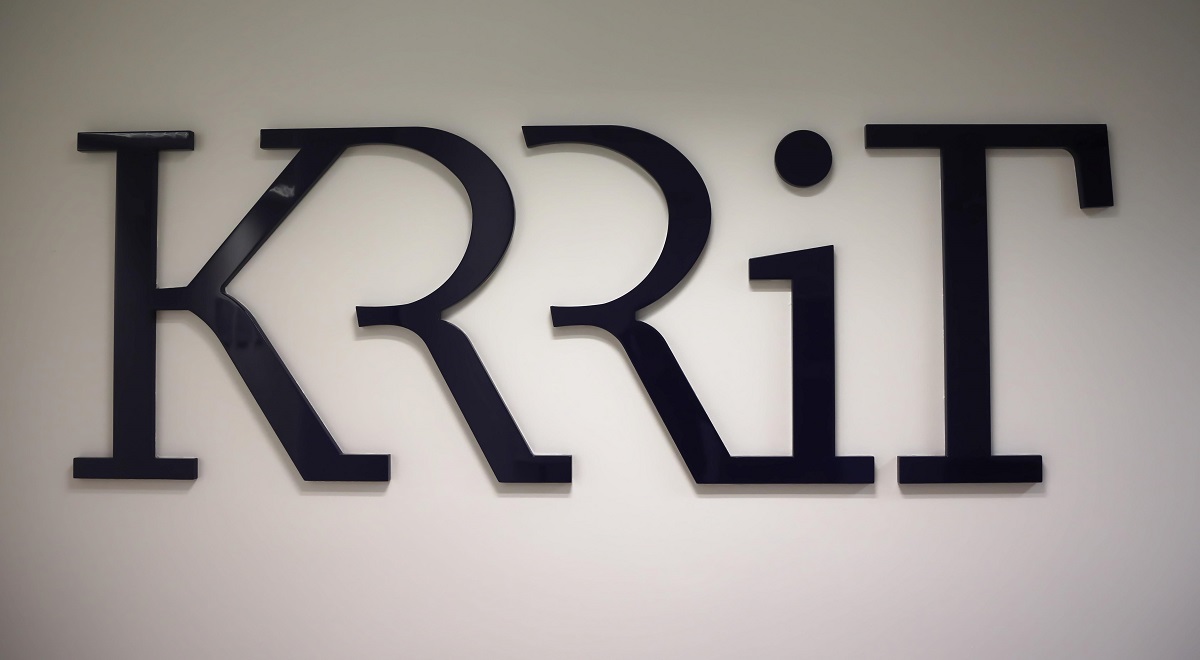The National Broadcasting Council Kept its July 28th Meeting Secret Citing Sensitive Information

Warszawa, 17.11.2021. Logo Krajowej Rady Radiofonii i Telewizji, 17 bm. w Warszawie. (wo/doro) PAP/Wojciech Olkunik
The National Broadcasting Council decided to keep their Wednesday meeting secret, explaining that “sensitive data” was discussed during the meeting. According to the former chairman of the Council, Jan Dworak, members of the National Broadcasting Council “are simply afraid of showing their lack of competence, that is, of an open debate on arguments and knowledge.”
Teresa Brykczyńska, the regulator’s spokeswoman, explains that Maciej Świrski – chairman of the National Broadcasting Council – issued the decision to keep the proceedings secret pursuant to par. 5 point 5 of the Regulations of the National Broadcasting Council of July 18, 2019. It speaks of the possibility of making a meeting or its part secret.
– The decision was made due to the sensitive data discussed during the meeting related to the regulation of the audiovisual market – informs Brykczyńska. As he emphasizes, he cannot even provide the schedule of the meeting itself.
However, the unofficial findings of “Presserwis” show that some members of the National Broadcasting Council were not to like the fact that detailed information from the meetings was provided to the media.
Member of the National Broadcasting Council, media expert prof. Tadeusz Kowalski, who was appointed to the Council by opposition senators, explains that he was against the chairman’s decision.
– In my opinion, there was no reason to keep the meeting secret. Most, however, decided that the deliberations would not be made public. I believe that this is an action to weaken social control and transparency of the activities of the National Broadcasting Council – states prof. Kowalski.
Jan Dworak, the former chairman of the National Broadcasting Council, believes that keeping the meeting secret means introducing new bad practices into the functioning of the Council. – I believe that the National Broadcasting Council should, as a rule, work openly. In turn, the chairman should carefully explain the reason for keeping the meeting secret, says Dworak.
In his opinion, one of the members of the National Council is simply afraid of showing him his lack of competence, i.e. of an open debate on arguments and knowledge. – The Council is composed of prof. Tadeusz Kowalski, who is probably not afraid of such a debate and is able to ask uncomfortable questions to the rest – says Jan Dworak.
And he adds: – I do not remember that we (he was the chairman in 2010-2016 – editor’s note) kept secret meetings. Everything was done openly. The previous KRRiT (its chairman was Witold Kołodziejski – editor’s note) had already restricted the access of the office management to council meetings and to various documents, but the minutes of the meetings were publicly available. At the moment, this mania of secrecy and fear of the “sovereign,” that is, the public, push these boundaries even further. Classification, however, cannot be kept as a rule because there are no grounds for doing so.
The next meeting of the National Broadcasting Council is not to be held until November, although the Council announced earlier that it would meet every Monday and Wednesday.
The six-year term of the current KRRiT has been in force since October 3. The Council consists of five members. Two each were elected by the Sejm and the President of the Republic of Poland, and one was elected by the Senate.
Marzena Paczuska-Tętnik, for many years, was associated with “Wiadomości” TVP, she also sat on the board of TVP to start working for Poczta Polska in March 2021. Hanna Karp is associated with the Academy of Social and Media Culture the university of Father Tadeusz Rydzyk. Agnieszka Glapiak was the director of the operational center of the Ministry of National Defense, she sat on the supervisory board of PAP, and she was also the director of the Government Information Center. Chairman Maciej Świrski is known mainly for the fact that he founded the Reduta Dobrego Imienia Foundation, was in the authorities of the Polish National Foundation, and sat on the supervisory board of PAP.
Tadeusz Kowalski was elected by the Senate and, therefore, the only opposition member of the National Broadcasting Council. He is a professor at the Faculty of Journalism, Information, and Book Studies at the University of Warsaw. He was a member of the former supervisory board of TVP, director of the National Film Archive, he is the co-author of the first Broadcasting Act of 1992.

